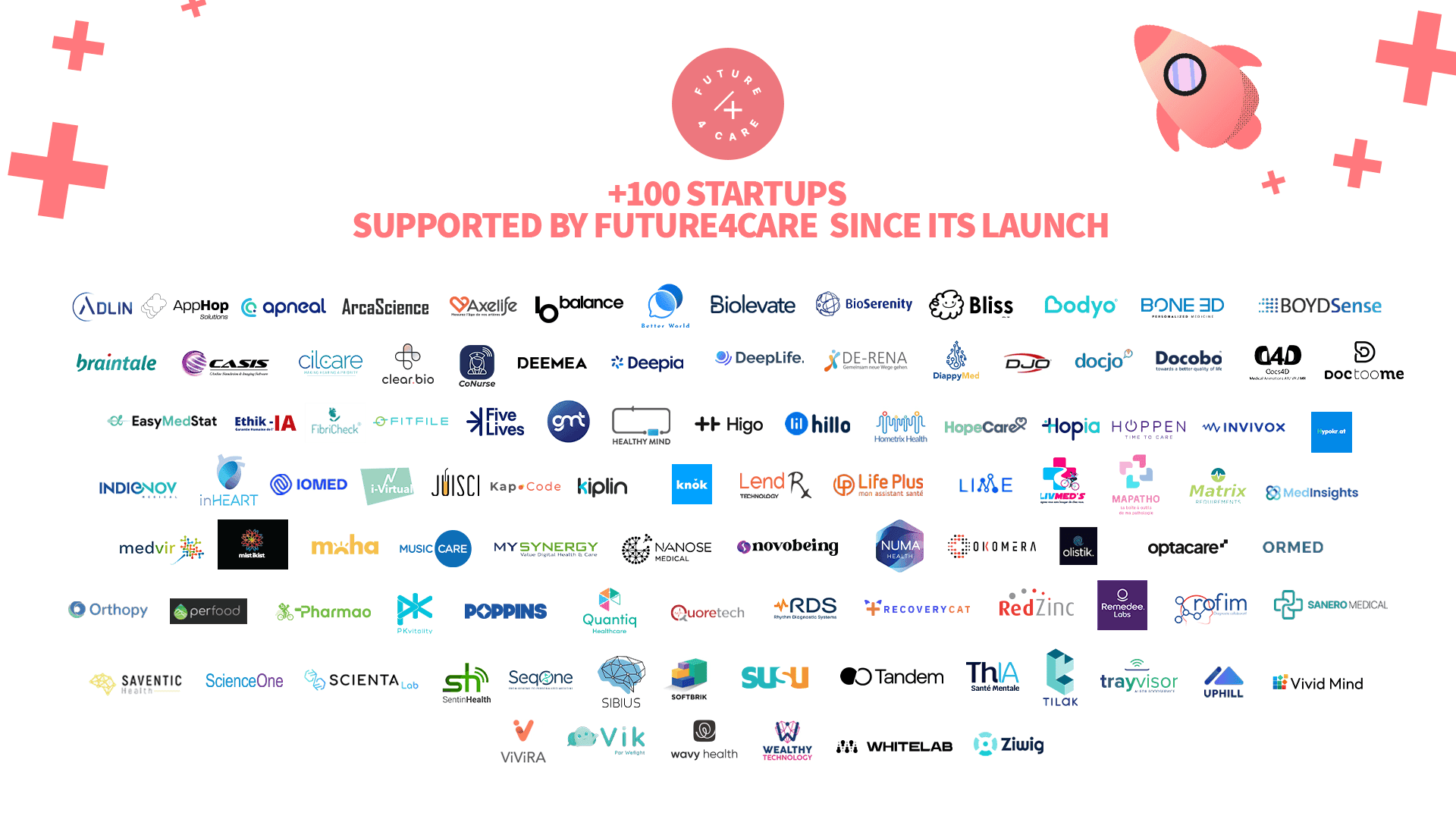For e-sovereignty in healthcare!
In just two years, digital technology has accelerated a process that would certainly have taken much longer without the epidemic. Go a few months back and remember how you used to get to a doctor. The transformation is radical for patients and healthcare professionals, and even more so for governments.
Published on December 20th, 2021 at 04:51 am
Taking stock, Europe notes the stranglehold has tightened even further, with China to the East and the United States to the West. The new era is being ushered in by this Sino-American duopoly led by their famous GAFAM and BATX. This geopolitical situation raises the question of strengthening Europe's impact and sovereignty.
If the epidemic precipitated this mutation, it has also accelerated European decisions in favor of the EU's digital and health sovereignty. To tackle this subject in all seriousness, we wanted to call on a person who is versed in economic as well as geopolitical issues linked to healthcare, with a strong affinity for the digital world. That is why we spoke to Sanofi's Director of Public and Government Affairs, Clotilde Jolivet.

Digital technology at the heart of Europe's transformation
The crisis has made most people aware of the importance of achieving a high level of autonomy for essential and innovative products, whether medicines or technologies, a challenge that the healthcare industry has been addressing for years. In both cases, digital technology plays a central role, transforming our entire industry. This quest is that of e-health sovereignty. E-health will play an increasingly central role in the provision of healthcare, as well as in the organization of the healthcare system. The supply, organization and development of treatments must be thought out on a European scale, otherwise we will not be able to establish our own sovereignty.
This is vital, not only for the production of goods, but also for the creation of value in the short, medium and long term. It's a matter of reconquest, since we have too quickly left this subject in the hands of other geographical plates. Digital technology is still in its infancy, and could well be our best ally in this reconquest.
We need to move swiftly from aspiration to operation, and organize on a European scale with a clear, easily deployable roadmap.
Health data as the driving force behind e-sovereignty
In the West, as well as in the East, the ideology is relatively different from that of Europe. The European Union, the world's third-largest economic power, is still struggling to position itself as the instigator and federator of European e-health. Notably because there are still major disparities between member states.
Digital technology creates value and is an opportunity for economic growth, job creation and attracting investors and talent.
Faced with the temptation to turn to solutions originating from North America or China, Europe must give itself the means to create real conditions for the deployment and massive use of healthcare data, by research teams, start-ups and industrialists, and resolve the ecosystem's challenges when it comes to using this data: facilitating the identification of sources and pooling them, providing for European data storage, establishing interoperability, avoiding the multiplicity of national legislations, guaranteeing the valorization of this data by regulatory and assessment authorities, ...
Data protection is another interesting example. Europe was a forerunner with the RGPD, and showed citizens that protecting their data was important. We therefore have a secure framework to develop innovation on health data and health solutions. China is in the process of strengthening its legislation, which allows the state to access all data generated on its territory, under the banner of national security, and without any guarantee of protection of either personal data or intellectual property. Europe can therefore assert itself as an attractive and competitive region in comparison to the USA.
To achieve this, European institutions need to harmonize and pool their approaches. In other words, they must fight against a heterogeneous vision among its 27 members, and avoid repeating the same mistakes made in the past decades with regards to medicines. Europe has a multitude of approaches specific to each country, making it difficult, until now, to produce and distribute on the same scale,
In 2022, if we want to be attractive and successful, we need to help our European start-ups avoid an uphill battle for evaluation and market access, so that they can develop rapidly in our market, then expand and move to the USA or elsewhere. Because the reality today is that some of our most ambitious entrepreneurs think first of the market across the Atlantic, even before establishing themselves in Europe. Fund-raising is easier and faster in the US because the market is unified, and the launch of a healthcare solution takes place de facto in a vast, harmonized market. We need to guarantee them a secure, interoperable and harmonized space.
In the short term, the European Union must take three steps in particular:
Propose harmonized regulations throughout Europe to guarantee simplified, secure deployment of healthcare data, which is the area of innovation par excellence for start-ups.
Guarantee European markets to encourage the emergence and industrialization of our future champions, first on our own territory, before exporting them.
Interconnect the dozens of European data initiatives, such as the Health Data Hub in France. These initiatives, however brilliant, will only be of limited interest in the medium term if they are not interoperable. At least if we wish to guarantee a market large enough and solid enough to compete with the East and West.
Evaluate to guarantee reliable industrialization over the long term
Obviously, going fast and offering a clear, predictable framework is only a short-term advantage. In e-health, more than anywhere else, this is not a sprint, but a marathon. A key challenge in creating value in e-health is evaluation. It is essential to guarantee safety and efficacy, whether through CE marking for medical devices or, of course, clinical trials for drugs. We still need to find the right evaluation model for digital health products and services.
This logic must obviously remain demanding for the good of patients, without becoming counter-productive, and it must be thought out on a European scale. Once an e-health start-up has validated its technology, it should be able to deploy it rapidly, rather than knocking on 27 assessment agency doors. Research and development work is already risky, so we need to make the evaluation stages as easy as possible, and support our entrepreneurs before they go to market.
This does not mean reimbursing all devices and solutions, but rather formalizing and harmonizing approaches and methodologies, for example to measure the impact of solutions that generate efficiency gains in healthcare. In short, we need to move towards more co-construction, and put real resources in front of entrepreneurs...
Co-investing in risk with entrepreneurs
Digital reconquest in Europe's healthcare sector is also a question of multidisciplinarity. The relationship between the private and public sectors, on a local scale and even more so on a European scale, is perceived as a power struggle linked to structural and cultural differences. Yet they are interdependent. The role of public authorities is to ensure that the framework in which we evolve is appropriate. At the same time, private players – whether they are manufacturers, investors or entrepreneurs - play an initiating role. The former need solutions that respond to the problems encountered by citizens, while the latter need favorable regulations and the capital to design and deploy them.
Today, however, it's difficult to obtain financing when there's a risk involved (regulatory, but not only). That is what's holding back the rise of our start-up ecosystem. It is in their nature to take risks, and we need them to innovate. The same applies to manufacturers.
There is a whole acculturation process to be thought through around this notion.
Today, we have a logic centered around subsidies (research tax credits, etc.), but no logic of co-investment in national and European risk. In the USA, the crisis has highlighted the role of the BARDA agency, which has invested massively in vaccine research, but which existed long before the crisis and whose role is to co-finance risk with private companies, whether in R&D or industrial deployment. The co-financing of risk is one of the strong points that will enable Europe to find its identity and achieve health sovereignty. We have been able to do this in the field of defense, in a regal logic, since the public authorities do not question the vitality of defense. The creation of the future HERA agency, and its industrial arm Eu-FAB, is a step in the right direction, but we need to speed up its creation and operationalization, so that projects by start-ups and larger companies can be boosted and anchored in Europe.
It's all about risk. The bigger the risk, the bigger the companies resulting from it wil be.
A clear framework for risk-taking is what will set us apart from other geographies, and attract talents capable of thinking up solutions. They need to have confidence that risk-taking is part of our culture.
Banking on multidisciplinarity
Beyond taking risks, consolidating a unified vision of healthcare data will undoubtedly be key to regaining a central geography. Of course, not all European Union countries are committed in the same way or at the same pace. Moving forward together means accepting that we have to deal with each other's differences. With its Presidency of the EU in the first half of 2022, France is in a position to make progress in the field of health data.
Defining the rules of the game and interoperability. In other words, creating a secure, easily accessible and value-creating structure.
Including the citizen. Helping them understand that the challenge is not to track data, but to create value for them, for their health, for progress, and so on. And to make them contributors to this new system.
Helping patient associations. These key players have understood, particularly in the case of rare diseases, that registers and monitoring are needed to save time and win the race against time in the face of these diseases.
Reducing inequalities. Sharing data will enable us to rationalize our healthcare system and help every citizen benefit from a personalized, and therefore fairer, system.
Preventing future crises. Data will guarantee the resilience of the healthcare system, thanks in particular to its predictive promises.
What's certain is that we can't achieve these goals without multidisciplinarity and risk-taking. We need open institutions, ambitious entrepreneurs, agile industrialists and, more broadly, a resolutely positive ecosystem at the service of European-style sovereignty.
You may also like
Future4care hosts the official announcement of the 80 winners of the French Tech 2030 program

Three Fundraising Announcements from Future4care Ecosystem Startups in September

This year, Future4care celebrates a milestone: 100 startups supported on their journey to shaping the future of health.
